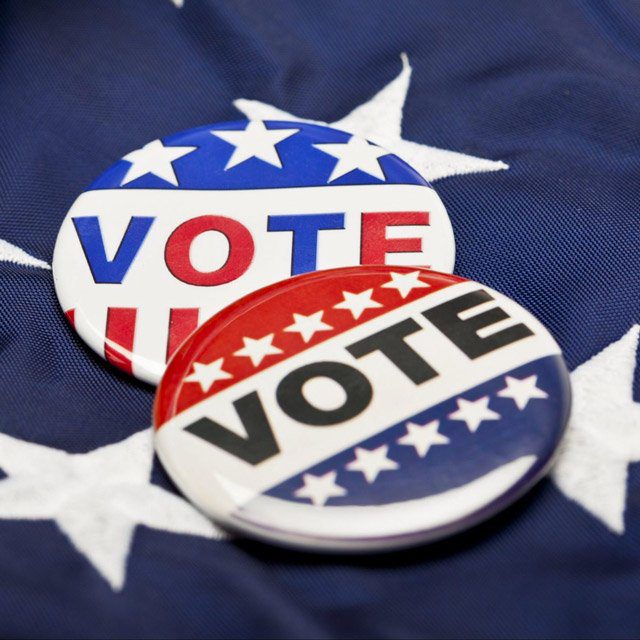Election Day to Deliver Verdict on Biden Agenda, Economy

But Biden and Democrats have not mustered a unified, effective message on inflation, which is running at a nearly four-decade high and is by far the top issue for voters.
Republicans by contrast have zeroed in on the financial squeeze on Americans from the rising costs of groceries, gasoline and other goods. A series of interest-rate increases the Federal Reserve launched to try to bring inflation under control is starting to slow the economy, with the housing market grinding to a near halt.
Big tech companies are announcing hiring freezes and layoffs, though a monthly Labor Department survey found businesses overall still added jobs in October.
Voters almost always punish the president’s party in midterm elections. Since World War II, the party holding the White House has on average lost 26 House seats and four Senate seats. Barack Obama’s Democrats lost 63 House seats in 2010 and Donald Trump’s Republicans 40 House seats in 2018.
Republicans need a net gain of only five seats to take control of the House, and nonpartisan forecasters anticipate the GOP will gain as much as 25, including some districts where Biden won in 2020.
Senate control hinges on a handful of closely fought contests, including Georgia, Pennsylvania, Ohio, Wisconsin, Nevada and Arizona, with North Carolina, New Hampshire and Colorado also potential harbingers.
More than 40 million early ballots have already been cast, according the United States Elections Project.
Polling stations on the US East Coast begin opening at 6 a.m. local time. Georgia will be among the first states to close voting, at 7 p.m., followed by Ohio and North Carolina at 7:30 p.m., then Pennsylvania and New Hampshire at 8 p.m. Wisconsin and Colorado polling stations shut doors at 9 p.m. East Coast time, Nevada and Arizona at 10 p.m. East Coast time.
Thirty-six states hold elections for governor, including contests in states that also have competitive Senate contests: Georgia, Wisconsin, Nevada and Arizona. Democrats are likely to flip governorships currently held by Republicans in Maryland and Massachusetts but Republicans are mounting a stiff challenge in Oregon, where Democrats have held the chief executive’s office for 40 years.
Abortion is on the ballot in five states. California, Michigan and Vermont voters are being asked whether they want to enshrine pregnancy termination rights into their states’ constitutions. In Kentucky, which has a ban on nearly all abortions, voters will decide a ballot question on whether state courts should be blocked from finding a right to an abortion within the state constitution.
Montana has a referendum on enacting statute requiring doctors to attempt “life-saving care” for infants “born alive after an abortion.” Alaskans are being asked whether a state constitutional convention should be held, where the issue of abortion rights could be considered.
Five states – Missouri, Arkansas, North and South Dakota and Maryland – are voting on measures to legalize cannabis. There also are state initiatives on union organizing, the minimum wage and Medicaid expansion on ballots.
(Image: Shutterstock)




